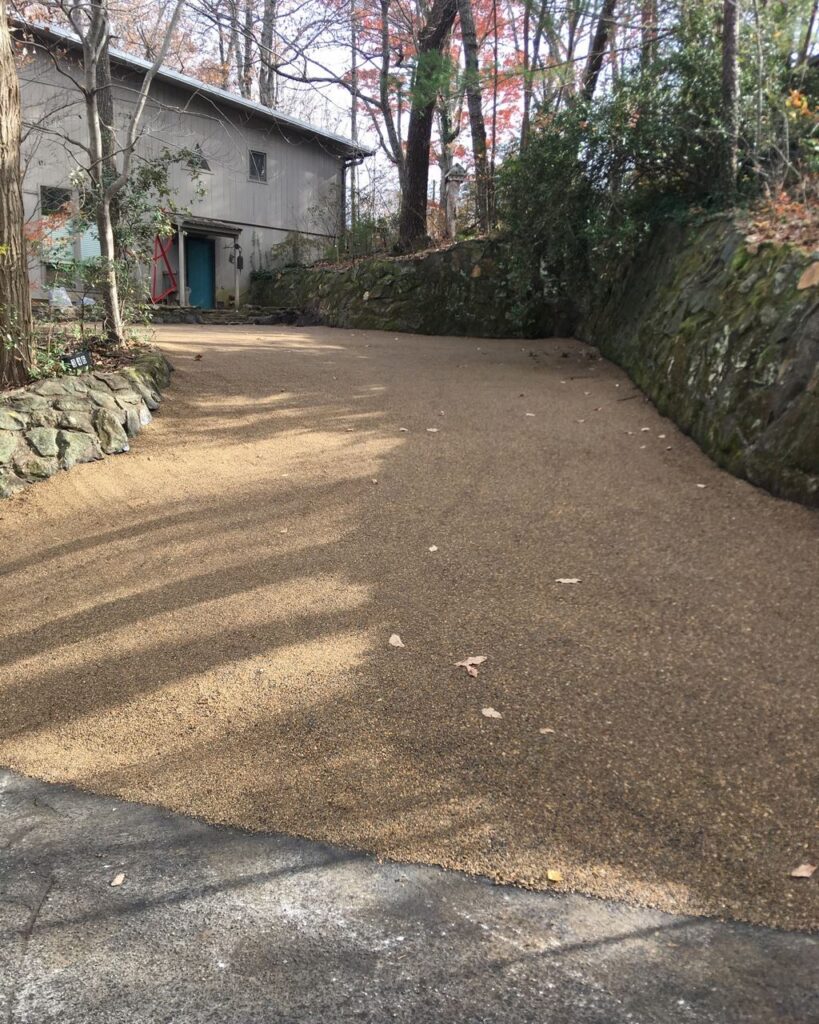Here at Uniform Paving & Sealcoating, we regularly receive questions from customers about when is the best time of year to pave. During this time of year, we are frequently asked if it is ok to pave a driveway in the winter?
Winter is Not Ideal for Paving
In general, we do not recommend paving during the winter months due to the cooler temperatures. Temperature plays a significant role in adequately compacting the hot mix of asphalt. If the pavement is not compacted correctly, it dramatically affects the longevity of its lifespan.
Asphalt companies cannot lay down asphalt on frozen ground even though the mixture is premixed at a high temperature. Once the mixture hits the frozen ground, it will immediately begin to break apart, resulting in poor quality.
Another elemental factor that impacts paving is if the weather is dry. In winter, we typically see more wet weather, which delays the curing process of asphalt. For asphalt to properly set up temperatures, need to be warmer and for the weather to be absent with precipitation.
When is the best time to pave a driveway?
Asphalt paving is best done in the spring and summer months when the temperatures are consistently warmer—waiting until this time will ensure that you receive a quality project that will last a long time with proper maintenance.
Caring for Your Asphalt in Winter
Nevertheless, there are things that you can do in the winter months if you already have a paved driveway or parking lot to ensure that it lasts longer.
If you have a parking lot for your business or Home Owner’s Association, winter is the perfect time to have your parking lines restriped.
Keeping your asphalt clean is imperative. Remove debris as you see it instead of letting it accumulate. This is also important for safety reasons too. Debris on your pavement will retain water, and as the temperatures drop, it will freeze into ice. Naturally, ice can cause vehicle wrecks along with slips and falls for pedestrians.
In the event of snow, shovel it away regularly instead of lying around. The number one nemesis of asphalt is water. Water will find its way into the most minute of cracks, and when the temperature drops, it will freeze. As water freezes, it expands and will widen cracks that you may not have noticed before the winter months. By taking the time to clear your pavement as much as possible, you prevent this cycle of freezing, thawing, and then freezing again.
Finally, inspect your asphalt throughout the winter and take note of any issues you may see happening. If you make notes now, you can go ahead and contact your local paving contractor for a winter inspection so they can advise you on what maintenance you need in the spring.
Get Paving Estimates Now
Winter is the perfect time to contact local paving companies for estimates if you are considering paving your driveway for the first time or if you know you will need maintenance in the upcoming year.
Since larger projects are put on hold until spring for paving contractors, they have more time to dedicate to estimates when the weather is cooler. If you contact them now, it will allow you more time to consider which company is the best fit for your project, as well as enable the contractor of your choice to plan for what you need to be done.
Spring and Summer are our busiest months here at Uniform Paving & Sealcoating, and the earlier we can discuss with you about your upcoming project, the sooner we can place you on our calendar for service. Our goal is to beat any competitive bid at any time, and we offer free estimates, so don’t wait to contact us today!
